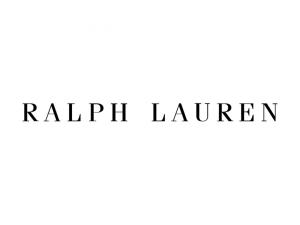
Digitalisation in the Luxury Fashion Industry
Learn how we helped Ralph Lauren UK transform its customer service with new digital opportunities in this case study.
Client
Ralph Lauren
The client
Ralph Lauren is a luxury fashion brand headquartered in the US. Founded in the late ‘60s, the company initially began as a menswear retailer but has since diversified into women's and children’s fashion along with luxury home and office furnishings, and gifts. Today, Ralph Lauren is a truly global brand, operating in almost every market; offering mid-range to premium fashions, which often feature the iconic Polo logo.
Ralph Lauren UK is one of the brand’s regional subsidiaries. In 2015, the UK team wanted to explore a digital transformation project to better serve its customers. Like other brands at the time, digital transformation in the fashion industry was helping to uncover new efficiencies. Most notably, how in-store stylists could engage customers with more efficient and personalised service.
Unfortunately, all of the brand’s IT systems and data were routed through its US offices. As a result, even though the UK team had secured buy-in for the project, they couldn’t undertake the transformation since so much of the brand’s digital skills and infrastructure were centralised elsewhere.
In turn, Ralph Lauren UK needed an expert digital product design agency to help them realise their vision. Specifically, for a new era of digitalisation in the luxury fashion industry amid the tight confines of Ralph Lauren’s overseas IT infrastructure.
Our brief
One of Ralph Lauren UK’s new staff members recommended us thanks to our work on the Domino’s Pizza app. Having previously worked with us, they had first-hand experience of our skills as a digital product design agency partner. In particular, how we could guide and scale product strategies via expert design, user testing and prototyping across different digital touchpoints.
So, Ralph Lauren UK reached out to us in 2015 and shared their vision of the company’s new era of digitalisation in the luxury fashion industry. Like other brands grappling with digital transformation in fashion retail, the team wanted to establish core services like Click and Collect for their e-commerce operations (which were becoming increasingly popular).
However, as a luxury retail brand, the UK team also wanted to increase adoption of their in-store styling service, which meant creating an online appointment service. And, to further realise personalisation opportunities, they also needed support with a wider data project that could integrate disparate systems together. Namely, to pull customers’ previous transaction history during sessions and make stock levels more visible across teams.
Adding to these pressures were the (then) newly launching GDPR along with the brand’s overseas IT infrastructure. So, there was a lot to grapple with. Nevertheless, we were just the digital product development agency to handle it.
What we delivered
The collaboration lasted three years with five main projects. As a result, we became an integral digital product design agency partner for the brand and its journey of digital transformation in fashion retail. Beginning with the Click and Collect system, we devised a workaround involving a dynamic overlay to alter what the customer saw while browsing.
We also designed an online booking system for the brand’s in-store styling service. The system incorporated added questions on existing preferences to guide the style session as well as strict GDPR compliance protocols.
Similarly, we designed and developed an in-house tablet app that could help stylists quickly look up inventory levels of luxury pieces that customers were interested in. Then, the app prompted other colleagues to collect them, ensuring the customer had continuous access to an expert stylist.
Finally, the collaboration benefitted from ongoing design and UX work, ensuring the company’s new digital transformation had a consistent branded feel.
Support
As an award-winning digital product design agency, we supported the UK team’s entire product development lifecycle. Using our three-pillar approach, we combined comprehensive digital strategies with a holistic design approach and engineering excellence. This means that we focus on finding scalable software solutions based on UX best practices that also meet customers’ needs.
We provide a maintenance and reporting contract throughout all our digital product development work. As a result, Ralph Lauren UK had access to regular reporting on our progress across each design or development sprint. This helped us anticipate potential issues before they became critical and streamlined key project milestones along the way.
The maintenance contract also included SLAs covering response times and target service restoration. These were covered by service credits in case we failed to respond or deliver to expectations but were never enacted.
Equally, to ensure well-defined and well-planned work, we used our standard process of Discover, Define and Deliver. This allows budgets to be planned and approved based on known deliverables. Future Platforms works on time and materials, with regular open reporting on past and forecasted burn, which helps to allocate resources more efficiently. Running projects using agile scrum boards allowed both our developers and Ralph Lauren UK to easily see what was planned across each of the five main projects before they began.
The design and development work was well received by the UK team, allowing them the much-needed independence and agility to serve regional customer needs.
Some years later, Ralph Lauren headquarters began a global project to explore new opportunities for digitalisation in the luxury fashion industry. So, the collaboration ended as the UK team had to pause its own digital transformation efforts.
However, at Future Platforms, we’ve been busy strengthening our proposition as a digital product design agency. Namely, by working with other premium brands like the Premier League, Telegraph Travel and Virgin Active.